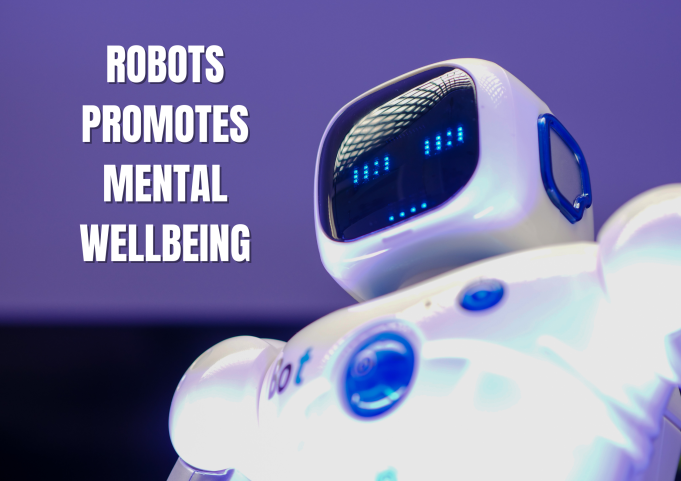A study conducted by the University of Cambridge found that participants interacting with a toy-like robot felt more of a connection with their ‘coach’ than those interacting with a humanoid-like robot. This study shows that robots can be a useful tool to improve mental wellbeing in the workplace. Researchers from the University of Bristol compared the effects of a toy-like robot and a humanoid robot on participants’ mental wellbeing. They found that participants who interacted with the toy-like robots reported higher levels of wellbeing than those who interacted with the humanoid robot. This could be because participants had lower expectations of the toy-like robot, and thus found it easier to connect with. The results of the study will be presented at the ACM/IEEE International Conference on Human-Robot Interaction in Stockholm.
Robots have been studied in laboratory settings to see how they can help promote and protect mental wellbeing in the workplace, but a new study by Dr Micol Spitale and colleagues has taken the robots out of the lab and into the real world. The study looks at how robots can be used to help employers address the lack of resources and personnel for implementing wellbeing practices. The findings suggest that robots can be a useful tool for promoting mental wellbeing in the workplace, and could help employers to better support their employees.
This research project explored the use of robots to help improve workplace wellbeing. Researchers collaborated with Cambridge Consultants to design and implement a four-week programme using two robots: the QTRobot (QT) and the Misty II robot (Misty). The QT is a childlike humanoid robot, while Misty is a toy-like robot. Both robots have screen faces that can be programmed with different facial expressions. The programme guided employees through four different wellbeing exercises, helping to improve their mental health and overall wellbeing. The results of the study suggest that robots can be a useful tool for promoting workplace wellbeing.
Participants for this project were guided through positive psychology exercises by a robot in an office meeting room. The robot was programmed to have a coach-like personality, with high openness and conscientiousness, and the same facial expressions and voice. After each session, participants were asked to assess the robot with a questionnaire and an interview. Results showed that participants found the robot to be a helpful and supportive coach, and that the robot was able to create a safe and comfortable environment for the participants. The study suggests that robots could be used as effective wellbeing coaches in the future.
Research from the University of Cambridge has found that people’s expectations of robots don’t always match reality. Participants in the study expected more interactivity from the robots than the programmed script could provide. This could be holding back the uptake of robotics in areas where they could be useful. Professor Hatice Gunes from Cambridge’s Department of Computer Science and Technology, who led the research, believes that new developments in large language models could help create robots that are capable of natural conversation. This could help bridge the gap between people’s expectations and the reality of robots.
In a recent experiment, researchers found that talking to a robot can be beneficial for mental wellbeing. Participants said they found the wellbeing exercises helpful and were open to the idea of talking to a robot in future. The robot served as a physical reminder to commit to the practice of wellbeing exercises, and just saying things out loud, even to a robot, can be helpful when trying to improve mental wellbeing. This study shows that robots can be used to help people with their mental health, and could be a useful tool for those struggling with mental health issues.
Researchers from the University of Cambridge have developed a robot coach to help people learn new skills. The robot coach is designed to interact with people in a natural way, providing feedback and guidance. The team is now working to enhance the robot coach’s responsiveness during coaching practices and interactions. The research is funded by the Engineering and Physical Sciences Research Council (EPSRC) and led by Hatice Gunes, a Staff Fellow of Trinity Hall, Cambridge. The aim is to create a robot coach that can provide effective and personalized feedback to help people learn new skills more quickly and efficiently.













